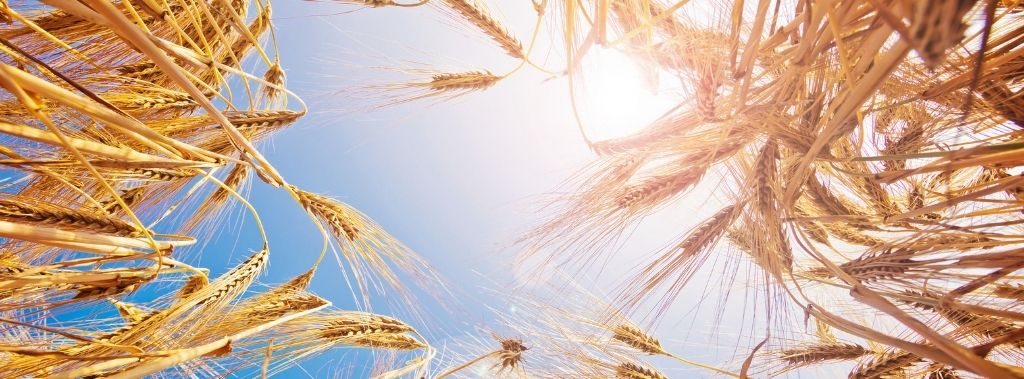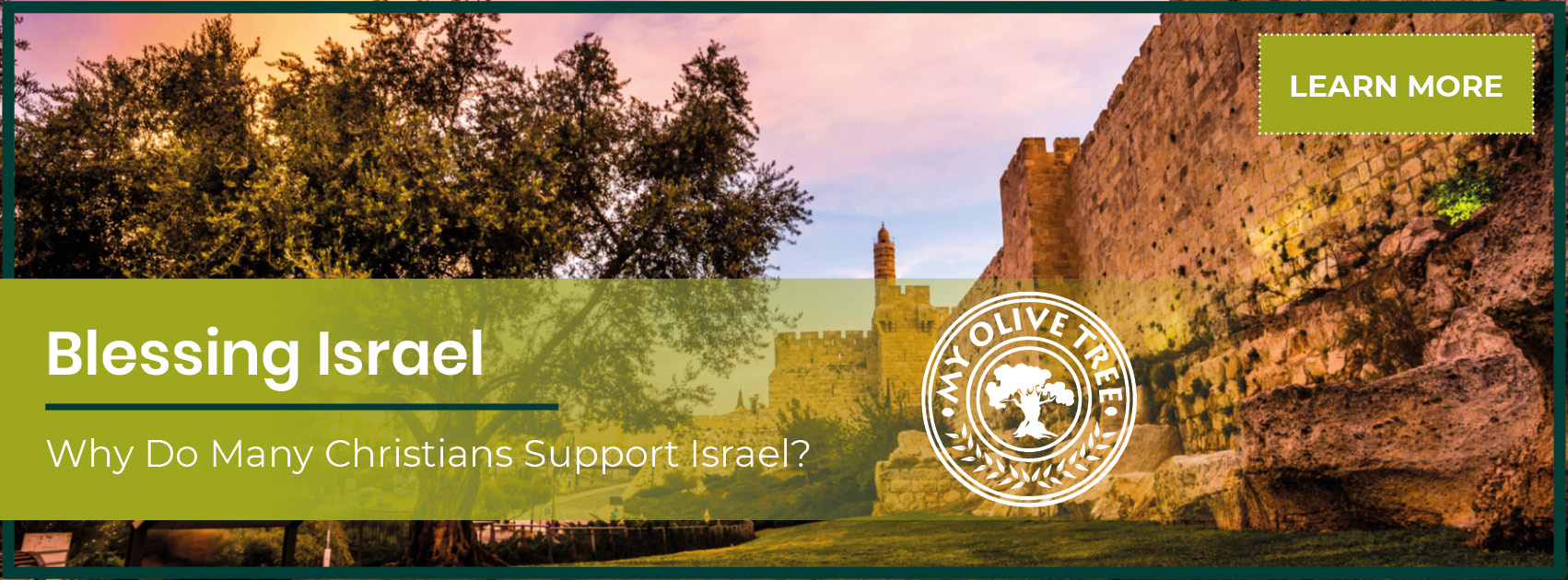Are you familiar with Shavuot? Most Believers know this biblical feast as the Feast of Weeks, but when is it celebrated and why did God command it to be so?
Join us as we discover what Shavuot is, the meaning of Shavuot, the connection of Ruth, God’s Law, and why it is important to us today…
What is Shavuot?
Shavuot is known by many names…
- Festival of Weeks
- Feast of Weeks
- Festival of Reaping
- Day of Firstfruits
- Pentecost
First given to Moses by God in the book of Exodus, Shavuot is a time that celebrates the gift of God’s Law and the provision He provides in the natural—such as harvest. This is where the meaning of Shavuot lies. Observed 50 days after Passover on the 5th to 7th of Sivan in the Hebrew calendar, or between mid-May and mid-June in the Gregorian, Shavuot was ordained by God in His Word as one of three pilgrimage feasts. Pilgrimage feasts being times where God’s children set aside earthly priorities to journey to meet with Him; honoring God with their time and resources.
How Shavuot IS and WAS Celebrated
Understanding how Shavuot is and was celebrated allows us to better understand the meaning of Shavuot, why it is important and why God desires us to observe it…
Shavuot now:
Shavuot today is typically celebrated by reading the Law given to Moses on Mount Sinai and the book of Ruth. Further, offerings that once would have been found in the form of crops and/or animals, now often take the form of a monetary gift since no Tabernacle or Temple are available today.
All in all, Shavuot today is a time of thankfulness, remembering the goodness of God and the gift of His Word—His Law.
“…do not forget my law, but let your heart keep my commands; for length of days and long life and peace they will add to you.”
—Proverbs 3:1-2
Shavuot then:
Shavuot was originally observed in the same way as the other pilgrimage feasts God created; with people traveling to the Tabernacle—later the Temple in Jerusalem—to give God their offerings. Unlike the others however, this gift honored not only God but recognized that it was He who provided His Word, His Law, and the very harvest that allowed them to give their firstfruits gifts.
It was a time of thankfulness and giving… with one common form of giving being the practice of leaving the crop boundaries unharvested to feed those in need and allowing gleaning behind the harvesters for that same purpose.
“Honor the Lord with your possessions, and with the firstfruits of all your increase; so your barns will be filled with plenty, and your vats will overflow with new wine.”
—Proverbs 3:9-10
Why the change?
Certainly, there are major differences. As one of the pilgrimage feasts, Shavuot was originally observed by bringing offerings to the Lord at the Tabernacle, then in later years, at the Temple. It required those who observed it to not only thank God with the firstfruits of their increase, but to also look back at the goodness of God with thankfulness, and echo His goodness by allowing those in need to glean…
Most of the differences we see relate to the current lack of a Tabernacle or Temple, however, changes in lifestyle also play a role. Certainly, not everyone living in biblical times had fields with crops ready to be harvested around Shavuot, but today even fewer do.
Only a small number of people rent or own farms, fewer people have herds, and there is just not as close a connection in modern culture to seed time and harvest time…
As a result, the gifts changed. Things like gleaning became less important, and people who had no reason to now make a pilgrim’s journey began to read more of God’s Word in an effort to keep their focus on God, His Law, and His ordained feast. To remember the goodness of God with thankfulness…
God’s Word, Offerings, and Shavuot
The Torah and God’s laws were given by God as a harvest for mankind. A source of food and life that bears fruit in us and in all we do. Yet, one of the reasons why the Law and Shavuot are so intimately connected is because it is said that Moses received God’s Law during Shavuot.
This not only explains why the Law and other Scripture are read during Shavuot today… but it also allows us to realize how good God is and the incredible timing of all He does. For those who celebrate Shavuot today, it is a time not only to remember the amazing nature of God, but to honor Him. To focus on God’s gift of spiritual harvest—spiritual food and life—and also give back to the Lord; giving God the firstfruits that come from His gifts to us.
This gift of firstfruits is demonstrated in focus, time, and of course, in offerings. Today these offerings appear quite different, but the heart of those who give remains the same. Obedience, love, and honor being a few of the major reasons for these firstfruits. Of giving to God, and to those in need.
The Connection of Ruth and Shavuot
So, how does the story of Ruth connect to God’s Law, giving, harvest, and Shavuot?
The story of Ruth is often read during Shavuot in addition to God’s Law. Many reasons exist for this, but three notable ones are: the season during which Ruth’s story is set; the inclusion of gleaning which is allowed due to the Shavuot ordinance regarding harvest and giving; and the way Ruth chose to follow Godly principles and laws.
Yet, when we consider that the book of Ruth is about a woman who was not a Jew by birth, the fact that Jews around the world choose to read her story at Shavuot becomes even more interesting. Especially as it is traditionally believed by many that Ruth was a high-ranking Moabitess, and that she prayed to and worshiped another god in her youth. In fact, Ruth could have potentially even worshiped the false god of Moab after marrying Naomi’s son Mahlon, as Ruth’s entreaty to her mother-in-law after they were widowed is often considered to be Ruth’s conversion declaration…
“Entreat me not to leave you,
or to turn back from following after you;
for wherever you go, I will go;
and wherever you lodge, I will lodge;
your people shall be my people,
and your God, my God.
Where you die, I will die,
and there will I be buried.
The Lord do so to me, and more also,
if anything but death parts you and me.”
—Ruth 1:16-17
So, why do Jews read the story of a converted Gentile woman? Why at Shavuot?
The more modern-day reason is that, having not fully embraced the gift of the Law in the past, Jews today put forth a special effort to be thankful for that gift. Ruth, therefore, being a Gentile who not only came to cherish God’s laws, but put them into practice so completely—altering every aspect of her life—is a wonderful example of joyfully embracing the laws that are now so cherished.
“…Boaz answered… ‘It has been fully reported to me, all that you have done for your mother-in-law since the death of your husband, and how you have left your father and your mother and the land of your birth, and have come to a people whom you did not know before.’”
—Ruth 2:11
Further, Shavuot was, and is, a holiday focused on harvest and firstfruits. Today, this is largely acknowledged through the foods eaten or by bringing plants into the home; though some still give the firstfruits of time, money, etc. However, no matter how Shavuot is celebrated, harvest and firstfruits remain important to the meaning of Shavuot, and the book of Ruth focuses on many aspects related to this theme throughout…
After all, Ruth meets Boaz in his field while gleaning barley—gleaning being deeply connected to Shavuot since the command to allow it is found within God’s Shavuot instructions.
“When you reap the harvest of your land, you shall not wholly reap the corners of your field when you reap, nor shall you gather any gleaning from your harvest. You shall leave them for the poor and for the stranger: I am the Lord your God.”
—Leviticus 23:22
Additionally, the timing of Ruth meeting Boaz is likely to have been during the Counting of the Omer—the fifty days of self-examination and preparation from Passover to Shavuot. Giving us preparation for Shavuot, as well as the gleaning and harvesting according to God’s instructions regarding Shavuot.
Then, soon after this meeting, during what is traditionally believed to be Shavuot—the time of firstfruits—the harvest festival arrives, as does Ruth’s destiny. This is a time when the harvest is brought in; but further still, the positioning of God as He brings us into His perfect timing and we, in turn, give a portion of our increase. Remembering God’s goodness as we honor Him and others through our giving.
“…wash yourself and anoint yourself, put on your best garment and go down to the threshing floor…”
—Ruth 3:3
At this special harvest time, Ruth, under the guidance of her mother-in-law, went to Boaz at his threshing floor during Shavuot with the expectation of his redeeming favor toward her according to the laws.
Ruth went expecting and was rewarded.
Boaz redeemed Ruth at the time of harvest and firstfruits… Her purpose was fulfilled, and she, through obedience, brought blessing to herself, Naomi, and those to come—for Ruth is the great-grandmother of King David, and is in the lineage of our Messiah, Yeshua.
“And Boaz said…‘You are witnesses this day that I have bought all that was Elimelech’s, and all that was Chilion’s and Mahlon’s, from the hand of Naomi. Moreover, Ruth the Moabitess, the widow of Mahlon, I have acquired as my wife, to perpetuate the name of the dead through his inheritance, that the name of the dead may not be cut off from among his brethren and from his position at the gate. You are witnesses this day.’”
—Ruth 4:9-10
Why Shavuot Matters to YOU
Understanding the meaning of Shavuot is important. Shavuot is a time when God brings us fully into our purpose and increase; when Passover blessings and promises are made manifest in a deeper way. It is when God’s Word comes forth to bring us life, and a harvest by which to give our firstfruits.
Shavuot is a time of joy, where we, like Ruth, are redeemed and drawn into the fullness of who God has created us to be!
A time when we are able to say to our Father what Ruth said in Ruth 1:16, “for wherever you go, I will go; and wherever you lodge, I will lodge; your people shall be my people, and your God, my God.”
We have been grafted into the Jewish root of promise like Ruth was and are able by the precious Blood of Jesus to enjoy the benefits of all the laws given to Moses on Mount Sinai…
We are able to enjoy the harvest God has given as well as the blessing of giving the firstfruits of that increase—increase of finances, time, and even joy!
“The Lord repay your work, and a full reward be given you by the Lord God of Israel, under whose wings you have come for refuge.”
—Ruth 2:12
Shavuot is a time of expectation, a time of blessing, and a time of harvest!Therefore, let all say this Shavuot: ‘Baruch atah Adonai, ve chag Shavuot sameach!’ or ‘Blessed be the Lord, and happy Shavuot!’









